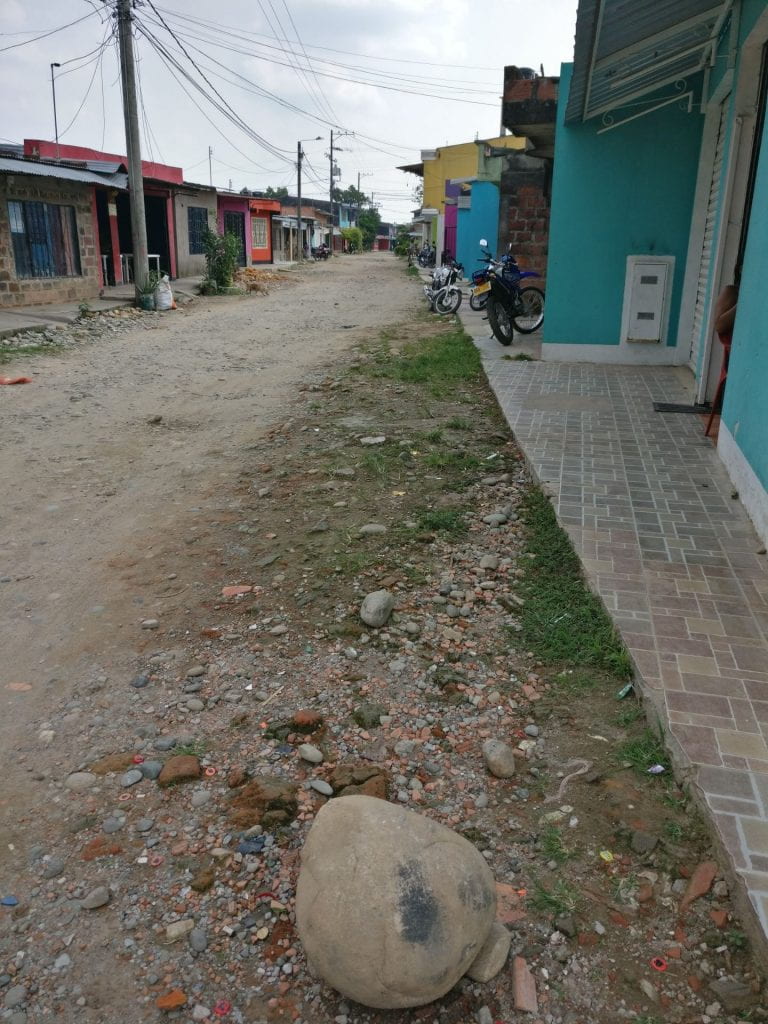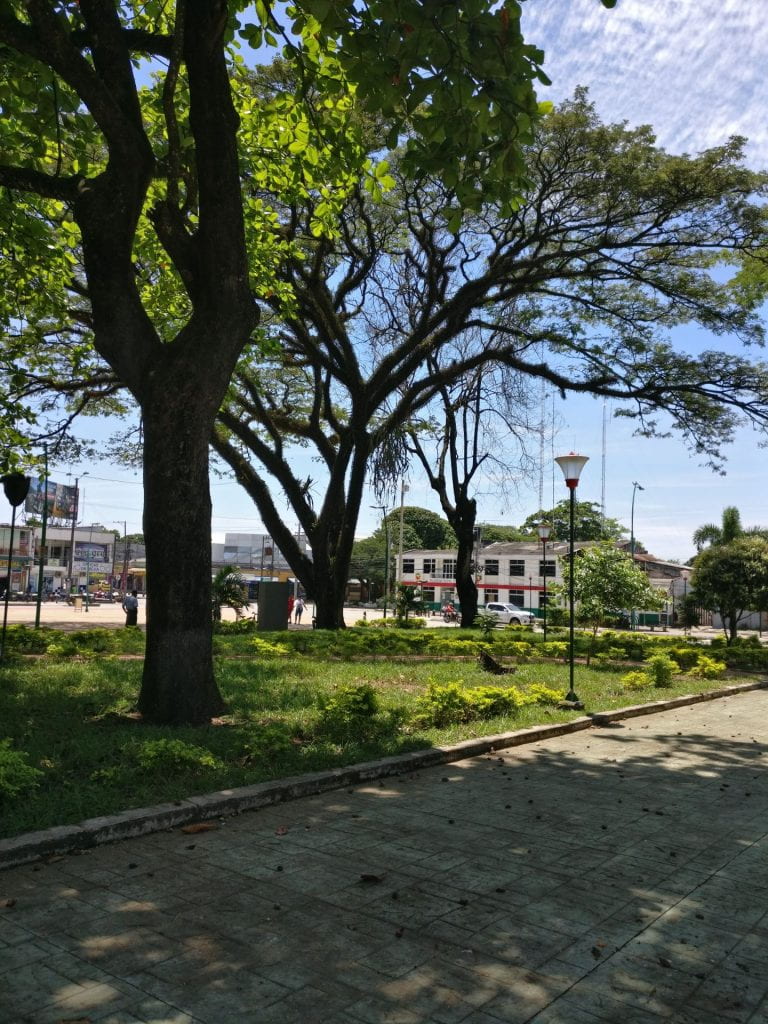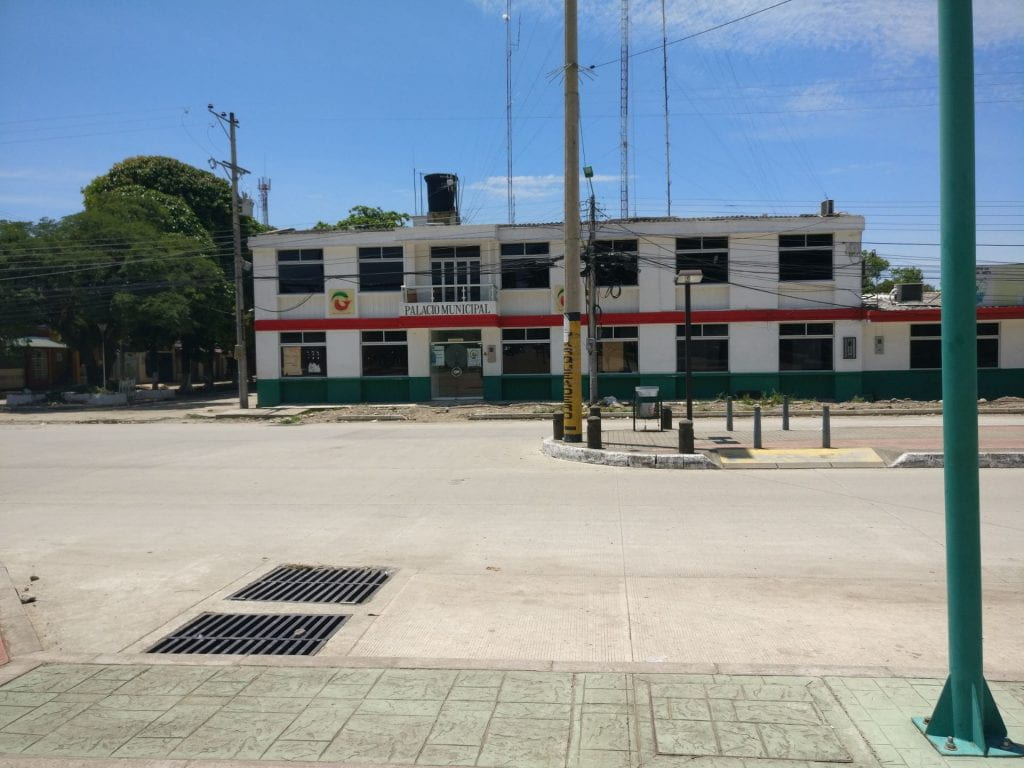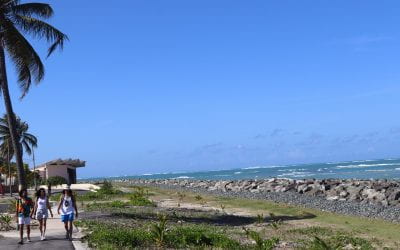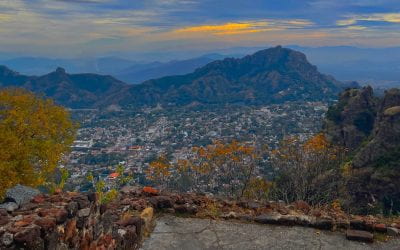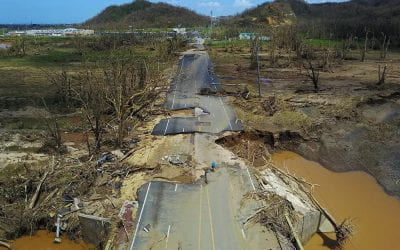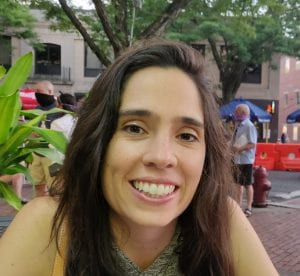
About the Author
María Atuesta is graduate student associate at the David Rockefeller Center for Latin American Studies. She is a Ph.D. candidate in urban planning at Harvard University studying how internally displaced populations create new neighborhoods in Colombia.
The WhatsApp Experience
The Pandemic and Ordinary Life in Granada, Colombia
A relatively young commercial city of around 80,000 inhabitants in the Colombian vast oriental plainlands received about 18,000 internally displaced persons of the country’s longstanding armed conflict. The city’s name is Granada, and it is the focus of my doctoral dissertation at Harvard. In 2018 and 2019, I conducted fieldwork research in the outskirts of Granada, where many poor and internally displaced families of civil conflict have settled. I left the city for Boston and learned three months later about the first confirmed case of Covid-19 in Colombia in early March. The news where shared in WhatsApp groups through which I maintained contact with different communities in Granada. WhatsApp has become a very popular tool in Colombia allowing friends, family, people with common interests and neighbors to connect through a multiplicity of themed groups. People use this tool daily, not just to communicate, but also to learn the news, coordinate events, criticize something or simply hang out. With such wide usage, the WhatsApp tool not only allowed friends and neighbors to maintain contact during the quarantine, but also became a means of experiencing the pandemic, offering me a lens into the ways Covid-19 has impacted the ordinary lives of many of the residents of the city’s poor urban peripheries.
The news of the presence of Covid-19 in Colombia was disturbing and unsettling for residents who did not know what to expect from this disease that came from afar. Many believed Covid-19 was a scam and kept asking whether the news was fake. Others claimed that Covud-19 was the invention of pharmaceutical companies interested in selling drugs and vaccines. People shared messages claiming that “the problem with Coronavirus is not the virus but the terror imposed on people.” Files with viruses circulated through the media, promising a new cure for the virus, but infecting instead cellphones and computers while scanning for personal information.
In a highly Catholic society, the virus manifested itself as the outcome of “all our sins” and people felt compelled to make a call to find their way back to God. The active users of the WhatsApp media began to distribute daily prayers to shield the city of Granada—so far untouched by Covid-19—against the imminent threat 🙏🙏🙏. They learned how others from nearby towns and cities took more direct actions on the matter and organized blockades along some of the main highways to keep out people, and therefore the virus, from their cities. Perhaps following by example, and using the web as a medium, some residents of Granada tried to organize sit-ins at the regional hospital in the city to protest the governor’s directive to move Covid-19 infected patients there. The hashtag, “We do not want Covid-19 in Granada” was created and shared (#NoQueremosCovid19EnGranada). Others expressed themselves against the hashtag, commenting that the hospital is the sole and only “lifesaver” for many people who may contract the virus.

Organized taxi drivers closed the main highway connecting Granada and other cities to Bogota to protect the region against the spread of the virus. Source: Periodico del Meta March 19 2020
Granada had no confirmed cases of Covid-19 when the national government decreed a strict quarantine in every city starting on March 24, 2020. Many obeyed the quarantine carefully. Some admitted having left their homes only to water their plants in front of their housing units. Others proclaimed publicly that “the breach of quarantine regulations should be considered attempted murder.” Yet, pictures of non-compliant citizens, and neighbors, were also regularly shared among the WhatsApp chatters. “The non-compliants” were caught on camera driving motorcycles, gathering in front of open businesses, or calmly resting under the shade of a tree. Pictures of children playing on the streets were taken, and parents were criticized for their negligence towards their offspring. In the meantime, information and misinformation spread on social media. While recommendations to wear masks and wash hands on a regular basis were shared, the virus was identified as a “bacterium that had been exposed to electromagnetic radiation type 5G” 🦠🦠🦠. All sorts of culinary recipes, ointments, and physical activities were shared as remedies.
Like in many other parts of the world, the quarantine and the fear of the virus released all sorts of social phenomena. Those who were able hurried to the grocery stores to buy as much food and supplies as they could. Unsurprisingly, people complained that toilet paper ran out everywhere. Some urged their fellow WhatsAppers to buy only what was necessary, reminding everyone that “we are all in this together.” A few denounced the discrimination against workers in the healthcare industry, and a video was shared of a nurse who was being denied entrance to a grocery store because she was wearing her uniform 😡😡. Women with a sewing machine at home started to produce masks and sell them on the web by the dozen with the option of home delivery. Food businesses also entered the food delivery system (ALBERTHAMBUR…THE BEST AND MOST DELICIOUS🍔🏍️🚕).
Unlike in many other parts of the world, communications were shared about the lack of access to potable water, a health hazard during the time of the pandemic. This is a problem that is common in Granada, especially among residents of the peripheral poor neighborhoods who suffer the burdens of imperiled water supplies. They can spend days without access to potable water, and they announce through the chat when water is finally back to help everyone quickly rush to wash dishes, do the laundry, take a shower and disinfect whatever they can before water is cut off again (Water is coming 🤗). The problem with water was exacerbated, ironically, during the time of the pandemic, because the regional energy company decided to punish Granada for a 2019 unpaid debt by shutting down access to the entire city.
On the bright side, because of the pandemic, the largest food industries in the region, producing different sorts of grains and oilseed, donated an important amount of food to be distributed among low-income families. Nevertheless, irregularities in the delivery of food packages generated tensions and discontent among vulnerable communities who kept complaining that not everyone had received food support and they were tired of the unfulfilled promises of public authorities (we are toooooooo old for this, so disrespectful). People also donated food to be distributed to street-dogs and cats. They worried that the cute animals that wander around the city would not be able to survive in the empty streets; with no passersby to hand them the usual leftovers.
Granada sits in highly productive lands, and many residents of peripheral low-income neighborhoods usually leave town to work in the rural areas every day. Despite the strict quarantine, some people were able to leave home for work in the rural areas, bringing back agricultural goods that were a source of income and a food supply for many low-income families during the pandemic (We have avocados 🥑🥑😋). During the quarantine, organized waste pickers were also allowed to continue working and received masks and disinfectants from public authorities. They are illegal and yet essential workers, especially in the informal settlements of Granada where there is no access to formal trash removal services. Those who were also allowed to move—but for very different reasons—were the immigrants from Venezuela who lost all their chances of making money during the quarantine. The regional government authorized the relocation of 200 Venezuelans to their home country, to which the WhatsApp commenters reacted with a complex mix of empathy and antipathy (God bless our Venezuelan brothers. Not all of them are bad people ❤👍🙏).
This collage of reactions, comments, and communications reveals how Covid-19 has reached ordinary life through social and virtual circuits, becoming both an intimate and a public experience for many who share their fears, views and sorrows through the web. A glimpse into the ordinary allows us to re-think how the pandemic has affected our lives in various and generally unaccounted ways. It also opens a contact zone for us to consider the ways in which the pandemic has affected the lives of spatially distant, and yet connected, communities. It can make us aware of what we take for granted: water. It can help us understand what communities value of their cities: their street dogs and cats. It can reveal both hidden biases and empathetic capacities. And it can also expose vulnerabilities that coexist with unique opportunities for resilience. For these reasons, I see this glimpse into the ordinary as an opportunity for action.
More Student Views
Weapons of Mass Construction: Building a Puerto Rico for the People
I zip up my raincoat and turn on my headlamp as we tread along a damp trail in El Yunque National Rainforest, Puerto Rico.
Climbing the Tepozteco: Meditations on Mexico
English + Español
With sweat trickling down my forehead, I meditated on the question: What does motivation look like?
Cultivating Resilience in Puerto Rico: Harvesting Fields of Change
As a born and raised Puerto Rican, my journey has always been intertwined with my homeland’s vibrant hues and resilient spirit.

